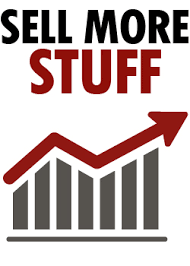 By this time in my life, I've experienced lots of companies, products and management teams. Worked for a few, founded or co-founded 9, invested in many and have had the privilege of consulting and working with some hundreds.
By this time in my life, I've experienced lots of companies, products and management teams. Worked for a few, founded or co-founded 9, invested in many and have had the privilege of consulting and working with some hundreds.
I love Mondays and what I do and have no intention of stopping, slowing down or doing anything else...except continuing to teach at Tufts and MIT for as long as they will have me.
On the investment side, when I was the chairman of the MIT Enterprise Forum (just a superb organization!), I remember asking a very well-known venture guy to talk at one of our standard monthly 10/250 meetings. I still clearly remember that he began his talk with... "as a venture capitalist, I've learned how to lose money". At the time, I cringed a bit and wondered where he was going with the rest of his talk, but he quickly came to the point of how he made investment decisions...good and bad...based on one or two key factors. Up to that point, I thought that all venture people had some secret formula and rarely lost money. What he did was to share with the audience his detailed decision-making criteria along with the resulting stats on his investments. It was at the point that I began to study the process of making early-stage investments along with the science of Marketing and Sales since I suspected then and know now they are tightly knit together. By-the-way, there's an interesting article on "Why Startups Fail" in the current edition of the Harvard Business Review. Definitely worth the read.
 Since those early days at the Forum, as an individual angel investor, as an investor and chairman of Common Angels, as a general partner in three venture funds, and as an active investor in startups at Tufts, I've done 54 investments and been actively involved in the fundraising of over $840m, and
Since those early days at the Forum, as an individual angel investor, as an investor and chairman of Common Angels, as a general partner in three venture funds, and as an active investor in startups at Tufts, I've done 54 investments and been actively involved in the fundraising of over $840m, and
I think that I've finally learned a few of my own personal rules about venture success.
- Of those 54 investments, when I assess the ones that totally failed washing out all of the investment, 25% of those that failed were due to weak CEO leadership and that person's inability to hire a heavily experienced senior team. A portion of that weakness was pure inexperience in leading a company, but the much larger percentage and more critical failure point was ego and wanting to control everything especially in the world of sales even when that person did not have the required experience. That disconnected thought process on the part of the founder came down to the scrambled idea that since that person created the product and the company, they should be able to market and sell it also. That may be good for a few evangelical sales, but not for a scalable sales process.
- 10% failed because the product never really worked, or, if it did work, it was too elegantly designed to be practically manufactured and scaled.
- 65% failed because the sales model and its related processes were largely based on art and guessing and not on the science of formal stepped processes and the understanding of the corresponding math of the amount of time being spent on the sale and at what cost. All of those failures occurred due to the lack of a heavily experienced head of sales successful in startups being on the team right at the beginning of the funding process.
The bottom line is that in any company-and especially in startups-scalable success will be built on management's ability to efficiently and effectively sell not products, but the value of those products to specific personas and be able to do that again and again and again. And that requires formalized processes, tools, technology and math, which is what I practice in our consulting work and teach at Tufts.
Which brings me to "The Science of Sales" Course at Tufts
Most everyone knows that I teach a marketing course at Tufts and have been doing so for a long time. The real success of that course is due to superb students, and the "content in context" format I use in my teaching,
- I provide the content of sales models, hiring, tools, metrics and technology.
- Teams of students work in the context of real companies who provide sales projects.
- 4-6 juniors, seniors and grad students to a company,
- I provide 60% of the grade based on projects plans, case studies and exams.
- Management provides 40% based on the results measured against objectives.
 This fall semester, I'll be teaching a "new & improved" marketing course again, and also kicking of a rebirth of "The Science of Sales" course that I taught for four semesters a few years ago. Since that time, I've thought through, studied, experimented with and implemented in our consulting practice a variety of new sales strategies, tactics and different approaches, and will bring those to the classroom in September.
This fall semester, I'll be teaching a "new & improved" marketing course again, and also kicking of a rebirth of "The Science of Sales" course that I taught for four semesters a few years ago. Since that time, I've thought through, studied, experimented with and implemented in our consulting practice a variety of new sales strategies, tactics and different approaches, and will bring those to the classroom in September.
Similar to my marketing course, I'll teach this with some of my alums who are now heads of sales in their own companies plus a few industry veterans. Right now, a full class of students are already signed up, and I's looking for companies to apply the same "content in context" formula as we do in the marketing course.
Potential projects could be:
- a complete sales plan for the company or for a specific product or service.
- customer research followed with a detailed sales plan and tactics
- market research coupled with detailed sales tactics
- sales model (direct, indirect, partner, online) analysis and planning
- recruiting, hiring, compensating and retaining salespeople
- sales technology assessment followed with implementation plans
...and any other thoughts about projects that you may have. The key for success is that the projects need to be complex since there will be a team of very bright students applied to your project over a period of 13 weeks. Across campus, my courses are known to require a lot of time and work...and they are always quickly filled with long wait lists. Not surprisingly, the majority of my students go on to have very successful sales and marketing careers.
If you're interested, just connect with me, and I'll send you the instructions today and set up a time to discuss and questions this week.
HAVE A GREAT Week selling and ending the month!
If you're interested in how to plan for a very impactful June and a dynamic end to the quarter, click HERE for our just updated Writing the Winning Sales Plan in 2021. 
A SOUNDING BOARD FOR YOUR June PLANS
If at any time, you have a need for a confidential sounding board for Sales or Marketing, just connect with me at any time. www.derbymanagement.com
Text or email me, and I'll quickly set up a call. I'm a pretty good listener, and we can get deep into tactics if you want.
Obviously, no cost for a call or two; just an opportunity to listen intently and make a few recommendations based on decades of experience.

